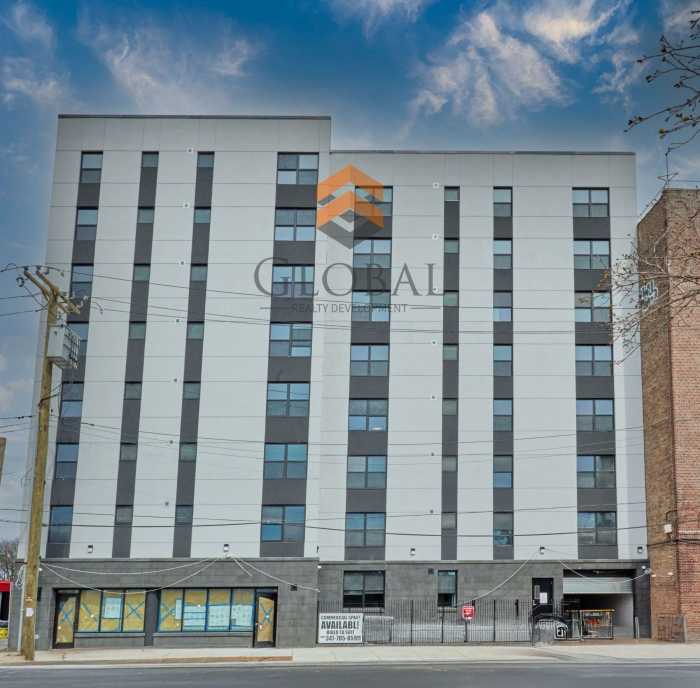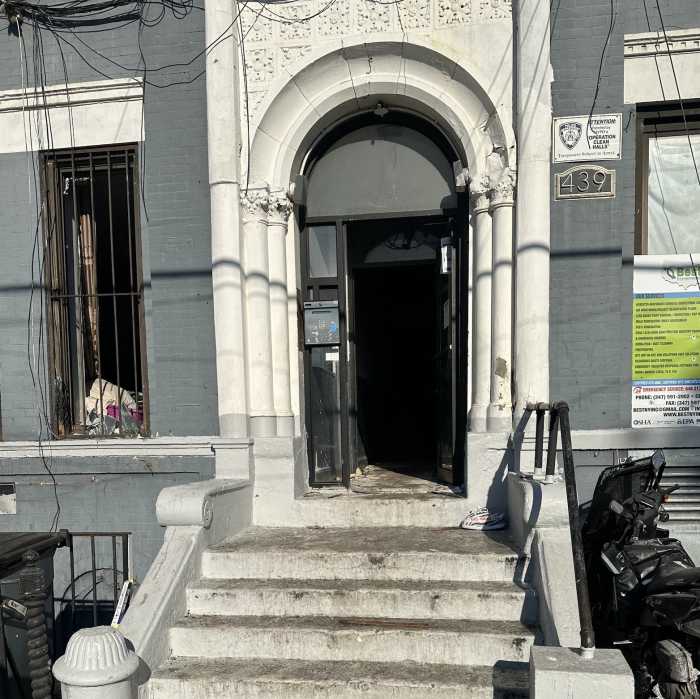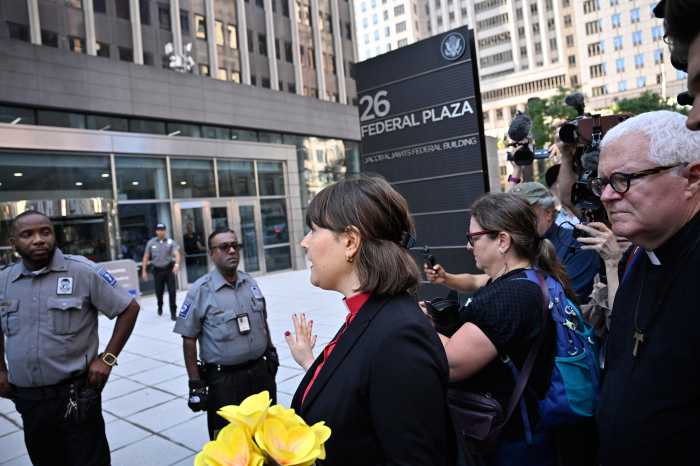A Rhinelander Avenue building has created nothing but headaches over the last six months, and elected officials are doing whatever they can remedy the situation.
Since March, local residents and the 49th Precinct have expressed serious concern about tenants in the six-story complex on 1545 Rhinelander Avenue, which houses clients with psychological disabilities in non-profit human service programs such as FEGS.
During eight months in 2011, officers of the 4-9 have responded to 66 complaints at 1545. Amid the complaints, local officials have been doing their part in seeking more information from landlord Hannah Goldberg, as well as the human service programs, about the tenants that are housed in the building.
On Thursday, August 18, Senator Jeff Klein was joined by Assemblywoman Naomi Rivera and local community leaders in front of 1545 Rhinelander Avenue to announce new legislation that he will present in front of the Senate.
Should the legislation be passed into law, it will require all human service programs in the state to provide local law enforcement with medical information about each mentally ill tenant being housed in their complex. Currently, providers are not obligated to do so and have been resistant in sharing this information.
“This type of red tape is literally putting people’s lives at risk. We need to make sure that police have the information they need to better protect themselves, as well as innocent bystanders and even the mentally ill aggressors in these dangerous situations,” Klein said. “My common sense legislation will do just that by breaking down bureaucratic barriers, while also respecting the privacy of these individuals.”
Concern began to rise when 48-year-old former FEGS client Paul Goldreyer was killed by police officers in March for approaching them with a steak knife after they responded to a domestic disturbance complaint.
Klein’s main concern is that many of the tenants have a violent history and are likely to cause physical harm to others, including police officers, tenants, and neighbors.
He believes that if law enforcement is provided with particular information about these tenants, police officers can develop alternative ways in handling situations, such as employing the use of mental health professionals, while responding to a call involving a mentally ill individual.
“This legislation is sorely needed as this location has been a problem in the community for some time,” said Al D’Angelo, president of the Morris Park Community Association.
The legislation would apply to organizations that operate community residences, or place a person with a mental illness or a developmental disability in residential apartment buildings containing 15 or more units.





















